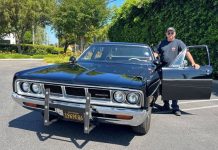
Generally speaking, a used car's resale value is determined by taking into account the following factors:
- How much are similar cars selling for?
- Is there a high demand for the car model in question? Are newer models coming out soon?
- Are there any major or minor mechanical problems with the car? Is the car model older or more recent? Or is there a new model coming out that will replace it soon?
- What body style is the car - sedan, hot hatch, truck, etc.?
- How many miles does the drivetrain have on it and how often has it been serviced?
- Have all of its scheduled maintenance checks been performed?
- What color is the car? Any unique colors or specialty paints used will decrease the resale value.
- Is there any rust or other exterior damage to the car, like dents or paint scratches?
There are many factors that go into determining how much a used car is worth. While all of these things affect the resale value of a car, they're not even enough to give an accurate estimate.
A used car's market value can only be determined by what the buyer thinks it is worth. If there is a very high demand for a certain car or if it has been discontinued and there is a limited supply of them on the market, you can often expect to get more than what the other factors would indicate.
For example, if you have recently purchased an unpopular luxury car which was just discontinued and nobody else has one like it, you can expect to pay for this uniqueness. The same thing goes for special edition cars like the Ford Mustang GT which was only produced in limited quantities.
Here are 4 tips to help you maximize the resale value of your vehicle.
1. Keep the car clean and free of dings and dents
Car owners can increase their car's resale value by keeping it in good condition. Keeping the exterior and interior shiny and neat looking will keep people more interested in purchasing a car that has been taken care of than one that is dirty and marred with scratches, even if those scratches and dents aren't noticeable when looking at the car from far away.
Prior to taking photos of your car (or taking it into a dealership for an appraisal), have the car washed and/or detailed.
2. Make sure there is no rust on the body
Rust is an unsightly blemish that can make a car less desirable to potential buyers, which will decrease the resale value of the vehicle. Beyond the cosmetic appeal, rust flakes off into your car's paint and can eat away at metal components.
Since rust weakens metal and causes it to crumble, it will negatively affect the structural integrity of your car. Rust can be seen as small holes starting to form on the surface of metal. This is because once rust takes hold, the amount of oxygen that comes into contact with iron increases causing oxidation (corrosion) at an increased rate. Eventually this will break down the structure of the material leading to collapse and eventual failure.
Owners should regularly wash their cars and look for rust spots. If any spots are detected, owners should have them repaired by a professional as soon as possible, using an anti-rust paint if necessary.
3. Maintain the engine and drivetrain properly
In addition to keeping the body in good condition, car owners should regularly maintain the engine and drivetrain in order to increase the resale value of their car. Oil changes, tune-ups and other general maintenance should be performed on a regular basis to keep the car running smoothly and efficiently. Furthermore, keeping engines clean by washing off oil that may have spilled onto them is very important as well.
If you need car servicing or general maintenance, use Enji to find someone local to you.
4. Negotiate ‘hard’
Apart from taking care of your car, negotiation plays an important role in the price you can ask for when you go to sell your car.
Know Your Worth
You may have heard of it before, but truly knowing what you are selling is key in negotiations. You not only need to consider factors that affect the overall price of your car, but also the facts about its current condition and market value. This way, you can easily distinguish if a "fair" offer actually fits within this range or is simply insulting your ownership rights instead.
Be Ready To Walk Away
Being able to walk away from the deal means having an upper hand when negotiating for a sale price on your car is crucial in negotiation tactics. While it is often difficult especially if you are desperate to find someone who wants to buy your car, doing so can definitely help to increase your profit.
Be Flexible
Do not only stick to one buyer who agrees on your asking price. You can always try selling the same model of car with similar features to other potential buyers and see which one is willing to pay more for it. This also applies if you are buying another car; different sellers will likely offer different prices on the same make and model of car, but try making comparisons between them before deciding who to buy from (if at all you decide to buy).






















